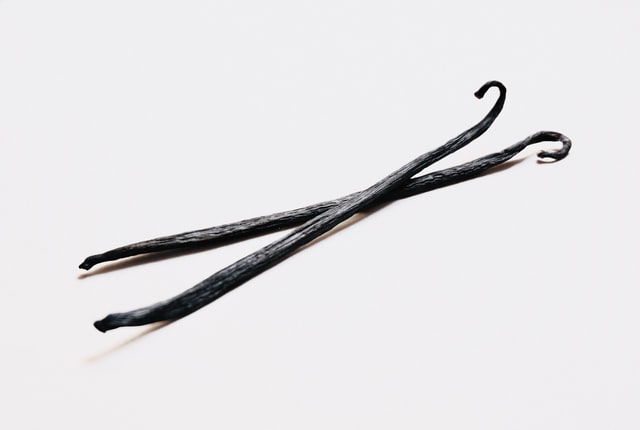
What's the deal with Vanilla?
I've talked to many of you about vanilla in the past. And I'll keep talking about it - because I'm passionate and I want you to be the most informed consumers that you can. Knowledge is power, and there is A LOT to know about vanilla.
In my typical fashion, I'm going to try to break it down into easily digestable facts.
Vanilla beans are the seedpod of a tropical climbing orchid.
Originally from Mexico, the best vanilla in the world currently comes from Madagascar. Other countries popular for their vanilla are Mexico and Tahiti. As with wine and grapes, vanilla beans take their flavors from where they are grown. The soil, humidity, climates and curing all have an impact on their flavors.
You'll find that Madagascar vanilla, or Bourbon vanilla, will have a deep, rich flavor. Mexican vanilla will be sweeter and creamy, while Tahitian vanilla is fresh, fruity and slightly floral. Yes, your beans make a difference!
Vanilla beans are picked while green and cured, differently depending on the region that they come from. The pods are so highly prized that they are branded with each farmers unique mark. After curing, beans are graded "A" or "B". "A" will be softer, with a higher oil content and will provide the best flavor. "B" will be dryer and not contain the same oils that help with the flavor. So before you buy your beans, take a look at the pod.
I often get asked if you should use the vanilla that you can buy at the grocery store. My short answer - NO!! Absolutely not. Unless they have pure vanilla that is actually coming from vanilla beans, what you are buying is actually not made from vanilla beans at all. Yep, you read that right. Synthetic vanillin has been replacing real vanilla since (wait..for..it) 1874!! And the most common synthetic that they use is coal tar. But there is some good news. The USA doesn't use coal tar as much any more because of it's carcinogenic properties. Instead they use things like paper waste, cinnamon bark, pine tar, and my personal favorite, cow poop. Yes, they have figured out how to extract a vanilla flavor from cow poop. Gross. So just pass up the vanilla at the grocery store and head for a local spice or specialty food shop and buy the real stuff.
And I can already hear it - but WHY is it so expensive? Vanilla is currently the second most expensive spice in the world after saffron. And for a while the price per ounce was higher than silver. So what's the deal?! The main reason at this point in time is simple. The crops in Madagascar were wiped out 2 years ago in a tropical storm. It takes an orchid 2-4 years to start bearing pods. Supply and demand in action. The supply shortened, the demand heightened, and ALL of the vanilla prices went up, whether they come from Madagascar or not. But what is happening now is a fascinating, sad and almost unbelievable tale. Read more about it on the link I've put below. It's a long article, but filled with things that you need to know about vanilla. And remember that bottle I've showed some of you, telling you that it retails for $260? I was wrong - it retails for $594!!
I'm also often asked what vanilla I recommend. I'm pretty particular about this topic. There are two that I recommend, one over the other. Hands down my favorite vanilla is Lafaza Vanilla. I found this fantastic vanilla at the Fancy Food Show in San Francisco years ago. The Double Fold will change your life. They are fair trade, organic and get their beans from small local farms. In essence, they do it right. Really right. And to me it makes a difference to buy my vanilla from a company that I can trust. You see, vanilla farmers are being robbed left and right right now for their cash crops. Their field workers are often mistreated and you're not exactly sure what the orchids have been treated with. This all makes a huge difference to me, personally. The other company I recommend is Nielsen-Massey. They've been around for over 40 years and make a fantastic product.
It may sound silly, but vanilla is more than an ingredient. It is the #1 flavor used in the WORLD. That means that where we buy, who we support and what choices we make DO make a difference. Not just in the flavors of our cakes and baked goods, but in the lives of people.
So next time you're standing at the grocery store, looking at bottles labeled "artificial" vanilla, take a pass. I've never put cow poop in my buttercream and I don't think you want to either!
